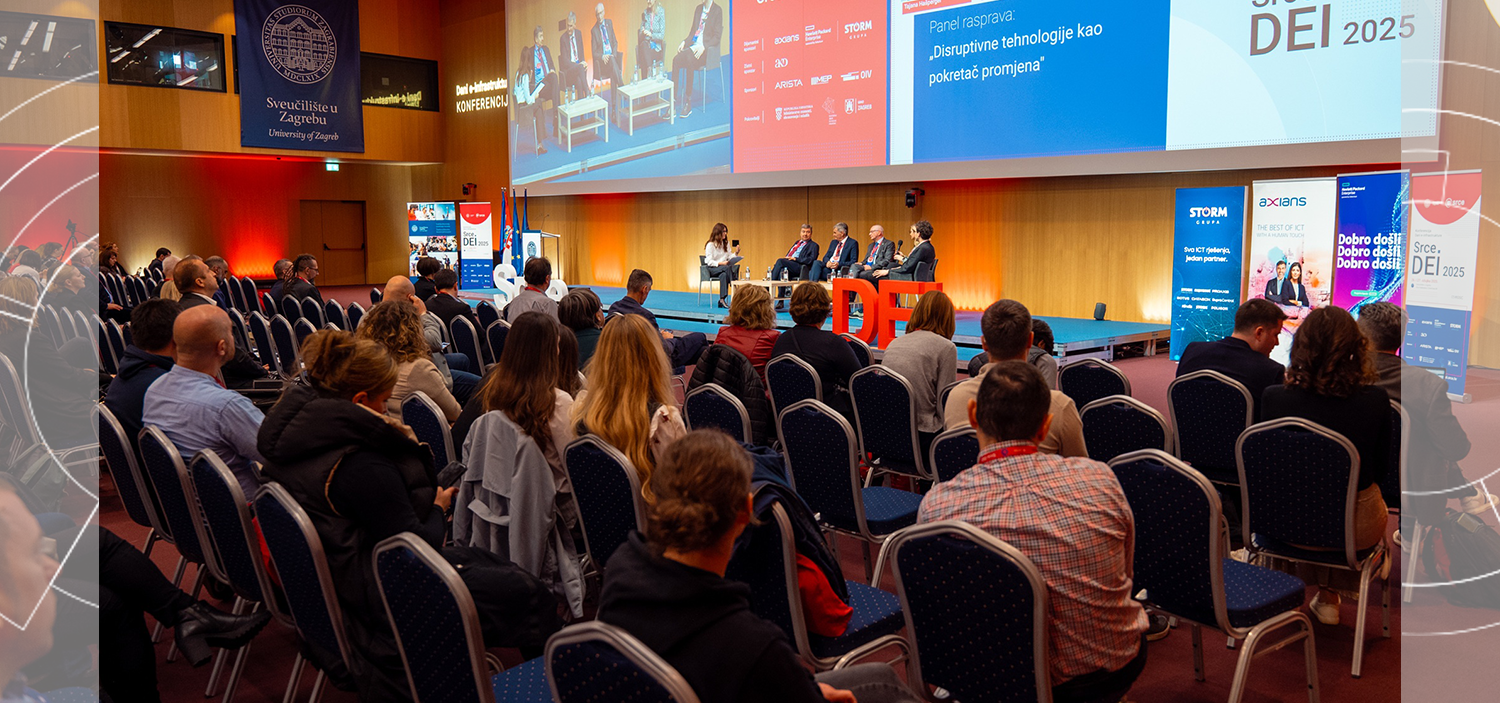Academic Community as a Driver of Disruptive Technologies
The SRCE DEI 2025 conference, organized by the University of Zagreb University Computing Centre (SRCE) in cooperation with the University of Zagreb, was held on March 26 and 27. This year's edition was supported by the Ministry of Science, Education and Youth, the Rectors' Conference of the Republic of Croatia, and the City of Zagreb. The event brought together more than 400 participants from academia, public administration, industry, and international institutions.
In his opening remarks, Professor Stjepan Lakušić, Rector of the University of Zagreb, emphasized the importance of the academic community in the domains of digital transformation and cybersecurity: “SRCE acts as a shield to ensure the safety of our university components and enables excellence in research projects. Few in Europe can boast an e-infrastructure as comprehensive as the one managed by SRCE, which includes six data centers capable of handling large-scale data storage.”
Dr. Dražen Lučanin, Head of the Department for Information Systems of the City of Zagreb, highlighted the value of connecting academia with the public and private sectors: “These conferences connect those developing technologies with those using them and with those educating future experts.”
Dr. Iva Ivanković, State Secretary of the Ministry of Science, Education and Youth, underlined SRCE’s role as a strategic partner in Croatia’s largest investment cycle in science and higher education.
SRCE Director Ivan Marić presented key accomplishments over the past year: “Our portfolio of services has grown to support both research and higher education. The SRCE Academy has played a pivotal role in developing digital competencies, while our newly launched reporting system increases transparency and supports digital transformation efforts in academic institutions. Through systematic infrastructure development, we have built digital sovereignty and a solid foundation for AI research.”
Keynote and Panel Highlights
Dr. Nils Wedi (ECMWF) delivered the keynote "Implementing Digital Twin Technology of the Earth System in Destination Earth", presenting efforts to build a digital replica of the Earth to monitor interactions between natural phenomena and human activity. AI is expected to play a major role in processing and interpreting the vast data sets required for such models.
In the panel discussion “Disruptive Technologies as a Driver of Change,” panelists agreed that while digital technologies offer many benefits, their implementation must be thoughtful.
“It’s not enough to jump on the AI trend. We must focus on education, understand the risks, and critically evaluate AI-generated results. Europe's delayed adoption of new technologies can be overcome through a federated model that aligns with the EU's core principles.”
Prof. Albert Sangrà (Open University of Catalonia) in his talk “New Leadership for New Digital Education Scenarios” emphasized that educational leaders need a clear vision and the ability to adapt to their institutional context:
“Leadership in education exists at all levels, and successful digital learning requires a synergy of technology, organization, and pedagogy.”
Open Science and EOSC in Focus
The session "Open Science and EOSC: From Principles to Practice" presented activities of the HR-OOZ Initiative member institutions, including the National and University Library, the Ruđer Bošković Institute, the University of Rijeka, and SRCE.
Photos and presentations from the conference will soon be available on the official SRCE DEI 2025 conference website.


